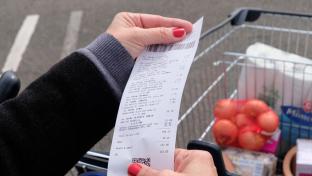Social licensing in food
Over the past few years, the term social licensing has become part of the discussion in the food industry.
While some consider this a buzzword, or even a fad, others believe the idea of social licensing to be transformative. It exists in the abstract and will likely remain as such, but the word is gaining traction.
Coined by a mining executive back in 1997, the concept of social licensing appears to have made inroads in the minds of food company executives and most importantly, consumers. Even policy makers are making an overture for the concept as work is being done to support our next national agricultural framework for 2018, Growing Forward 3.0. Despite that, it is challenging to fully appreciate what social licensing actually means for the future of food in our country.
Social licensing is the ability for any organisation to operate with the confidence of stakeholders and that its activities are deemed morally and socially legitimate. Social licensing is beyond the rule of law as policy always lags behind industry’s will to advance in new frontiers. Companies are judged based on a set of values collectively shared across the food continuum. Ultimately, all of us, companies, government, and consumers alike, aspire to actually co-own food systems.
What is implicit about social licensing is the notion, the ownership, and the control. Through social media, consumers have acted fiercely on their co-ownership rights in recent years by expressing concerns related to issues which were, at one time, perceived as obscure. Just this year, we have seen several cases affecting food systems such as the price of cauliflower rising to $8 in the winter, Leamington-based French’s ketchup de-listing at Loblaw, and U.S. beef at Earl’s Restaurants. More cases are surely to occur in the future.
All of these incidences were perceived breaches of an inherent social license of sort. Consumers are the CEO of food systems, making calls based on imperfect information, while everyone else struggles to follow.
Nevertheless, on the surface, the idea of granting social licenses in food may appear obvious. After all, it can bring more attention to underemphasized issues such as food systems in northern communities, climate change mitigation and innovation in food. However, what is less clear is who should make that call and what values are considered in the modern public court of opinion when it comes to food.
What makes the social licensing process so challenging in the food industry is how difficult shared values can be identified. In mining, information technologies, and pharmaceuticals consensus is much easier to reach than when food is involved. Food, which is consumed every day, is a culturally-charged aspect of our lives, that is profoundly influenced by socio-economic factors. To identify specific common values in food across the country is close to impossible.
For example, while some believe animal welfare and organically grown food to be essential virtues of our food systems, others simply do not. Furthermore, access to more real-time data and portable technologies have made the market place fickle. Shared values can change almost daily now.
Furthermore, what is also missing in the public discourse is how consumers should be seeking a so-called social license as well through reducing waste and becoming more educated about food systems in general. Co-ownership is not just about how we seek benefits from a system, but is also about engagement. In order for a social licensing process to work consumers need to be accountable to themselves.
The unease generated by this debate is how it is unintentionally excluding some of us. With food price points moving up, we are in fact dealing with an increasingly two-tiered food system in Canada. This would comprise of the haves and the have-nots. The haves can afford to recognize market failures and social licensing breaches as the industry is contently attempting to gain more legitimacy in the eyes of apprehensive consumers.
However, the have-nots are often forgotten. For them, food is essentially a question of survival and the quest for a social license by industry is inconsequential. Food origins, farm and processing practices are trivial matters. Canada has many consumers who feel completely disfranchised and cannot fathom the thought of co-owning anything, let alone food systems. Making Canada food secure is and should undeniably be imbedded in the process of social licensing for the industry. However, making our nation’s food secure is not just about making food affordable. It is really a matter of striking an equilibrium between what should be supplied to the marketplace versus what is required for markets to become nutrition secure.
For the time being, discussions around the food industry’s social licence is uncharacteristically exclusive, but it should not be this way. Whether we agree with the concept of food social licensing or not, or even think that it has always been there, this may offer an opportunity for stakeholders to make the food industry more democratic, more accessible and relevant to the broader public.
What needs to be underscored though is how consumers themselves can make a difference in acquiring their own social license as CEOs. A social license cannot be bought, because it just doesn’t exist and it never will. But all of us need to get one the old fashioned way, by earning it.





